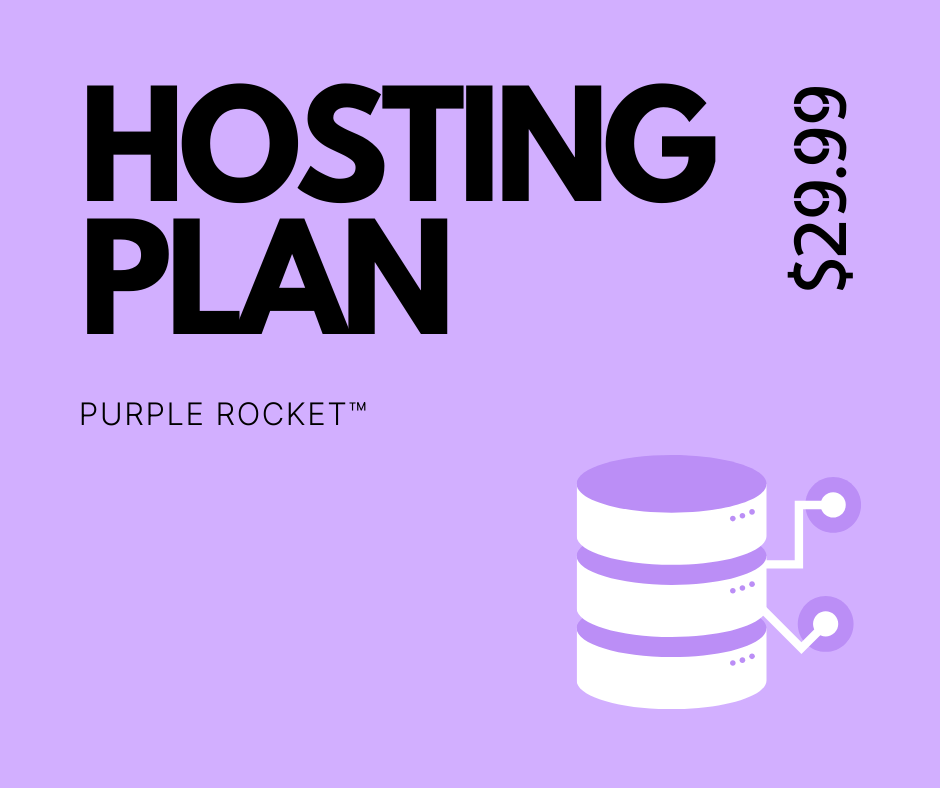7 Experts Tips for Getting Remote Jobs
- Admini
- Job Hunting, Productivity, Remote Work
- 0 Comments
The landscape of modern employment has undergone a significant transformation, marked by the rise of remote work. This trend, catalyzed by rapid technological advancements and the global pandemic, has redefined traditional work environments. Remote work, once an exception, has now become a mainstream mode of operation across various fields. The flexibility it offers is unparalleled; employees can now balance their professional and personal lives more effectively, contributing to improved job satisfaction and overall well-being.
In essence, the rise of remote work signifies a paradigm shift in how we perceive and approach employment. It offers a myriad of benefits, including flexibility, cost savings, and enhanced productivity, making it a viable and attractive work model for the future. As more industries adapt to this change, it is evident that remote work is here to stay, shaping the future of work in profound ways.
1. Identifying Remote Job Opportunities
The landscape of remote job opportunities is vast and diverse, catering to a wide array of professional skills and preferences. Remote job options range from full-time positions with established companies to freelance projects that offer greater flexibility. Understanding the different types of remote work available is the first step in finding a role that aligns with your career aspirations and lifestyle.
Full-time remote positions often come with the stability of a fixed salary and benefits, similar to traditional in-office roles. These positions are prevalent in sectors such as tech, marketing, customer service, and content creation. Companies like Buffer, GitLab, and Zapier are well-known for their fully remote workforces. On the other hand, freelance projects provide an opportunity for professionals to work on a variety of short-term or long-term contracts, offering autonomy over their schedule and workload. Freelancers are commonly found in fields like graphic design, writing, programming, and consulting.
Identifying legitimate remote job postings requires vigilance. Unfortunately, the rise in remote work popularity has also led to an increase in scams. To avoid falling prey to fraudulent job listings, look for postings on reputable job boards and websites dedicated to remote work. Sites such as Remote.co, We Work Remotely, and FlexJobs are excellent resources, offering curated lists of remote job opportunities from verified employers. These platforms also provide valuable insights and resources to help job seekers navigate the remote job market effectively.
When evaluating a remote job posting, pay attention to the details provided. Legitimate employers usually offer comprehensive job descriptions, clear information about the application process, and transparent communication about compensation. Be wary of postings that require upfront fees or promise unrealistic earnings. Conducting thorough research on the company and reading reviews from current or former employees can also help in verifying the legitimacy of a remote job opportunity.
2. Optimizing Your Online Presence
In today’s competitive job market, particularly for remote positions, having a strong online presence is crucial. Employers often turn to the internet to vet potential candidates, making it essential for job seekers to present themselves professionally across various platforms. One of the most influential tools for establishing a robust online presence is LinkedIn. Crafting an impressive LinkedIn profile can significantly enhance your visibility and appeal to potential employers.
To start, optimize your LinkedIn headline. This brief statement should succinctly convey your professional identity and what you bring to the table. Use industry-specific keywords to ensure you appear in relevant searches. For example, instead of simply stating “Software Engineer,” consider “Remote Software Engineer Specializing in Full-Stack Development.”
Next, focus on your LinkedIn summary. This section offers a more detailed narrative about your career journey, skills, and aspirations. Aim for a concise yet comprehensive overview, highlighting key achievements and experiences that align with the type of remote jobs you are targeting. Be sure to include any remote work experience, as this demonstrates your capability to thrive in a virtual work environment.
The experience section is another critical area. List your previous roles with clear, quantifiable achievements. Use bullet points to enhance readability and include keywords relevant to your industry. Remember, recruiters often use automated systems to filter candidates, so incorporating the right terms can be beneficial.
A personal website or portfolio can further bolster your online presence. This platform allows you to showcase your work in a more detailed and visually appealing manner. Whether you are a developer, designer, writer, or marketer, a well-crafted portfolio can provide tangible evidence of your skills and accomplishments. Ensure your website is easy to navigate and includes sections such as an “About Me” page, a portfolio of your work, and contact information.
Maintaining an active online presence through regular updates and engaging with industry-related content can also set you apart. By commenting on relevant posts, sharing insightful articles, and participating in professional groups, you demonstrate your expertise and commitment to your field.
In summary, optimizing your online presence is essential for securing remote jobs. A polished LinkedIn profile, combined with a personal website or portfolio, can significantly enhance your chances of standing out to potential employers.



3. Networking on Social Media Platforms
In the digital age, social media platforms have become invaluable tools for job seekers, particularly those looking for remote positions. Leveraging these platforms effectively can significantly enhance your chances of finding suitable opportunities. LinkedIn, Twitter, and Facebook are three key platforms that can help you connect with industry professionals and potential employers.
LinkedIn, often referred to as the professional social network, is a prime platform for job seekers. Start by ensuring your profile is complete and up-to-date, highlighting your skills, experience, and remote work capabilities. Join relevant LinkedIn groups where discussions about your industry or remote work are active. Engaging in these discussions not only showcases your expertise but also helps you build relationships with other professionals. Additionally, don’t hesitate to connect with recruiters and hiring managers, as many actively use LinkedIn to find candidates.
Twitter is another powerful tool for networking. Follow industry leaders, companies, and job boards that frequently post about remote job openings. Participate in Twitter chats related to your field to increase your visibility. Using relevant hashtags like #RemoteWork, #WorkFromHome, and #RemoteJobs can help you find and join conversations about remote opportunities. Tweeting about your professional achievements and sharing insightful content can attract the attention of potential employers and collaborators.
Facebook, although traditionally seen as a personal social network, also offers valuable networking opportunities. Many groups on Facebook are dedicated to remote work and specific industries. Joining these groups allows you to access job postings, participate in discussions, and connect with like-minded professionals. Actively engaging in these communities can help you build a network of contacts who might refer you to job opportunities or provide valuable advice.
Effective networking on social media requires consistency and authenticity. Regularly engage with posts, share valuable content, and offer your insights. Building relationships takes time, but a well-nurtured network can be a crucial asset in your search for remote job opportunities. By strategically using LinkedIn, Twitter, and Facebook, you can enhance your visibility in the job market and increase your chances of landing a remote role.
4. Leveraging Freelance Platforms
In the dynamic landscape of remote work, freelance platforms such as Upwork, Fiverr, and Freelancer have emerged as pivotal tools for both job seekers and employers. These platforms provide a marketplace where individuals can offer their skills and services to a global audience, enhancing their opportunities for securing remote jobs.
To effectively leverage these platforms, it is crucial to understand how they operate. Upwork, Fiverr, and Freelancer allow professionals to create profiles that showcase their skills, experience, and portfolio. Potential clients browse these profiles and post projects or gigs, which freelancers can then bid on or apply to. Success on these platforms begins with a strong, compelling profile.
When crafting your profile, focus on clarity and professionalism. Highlight your expertise and specific skills that are in demand, and ensure your profile picture is professional. A well-written bio that succinctly summarizes your qualifications and unique value proposition can significantly enhance your visibility and attractiveness to potential clients. Additionally, including a portfolio of your previous work can provide tangible evidence of your capabilities, making it easier for clients to trust your expertise.
Writing effective proposals is another critical aspect. Each proposal should be tailored to the specific job or project, demonstrating your understanding of the client’s needs. Start with a strong introduction, clearly outline how you can solve the client’s problem, and provide examples of similar work you have done. A competitive but realistic bid is also essential; it should reflect the value you bring without underselling your skills.
Building a strong reputation on these platforms is equally important. Positive reviews and high ratings from previous clients can significantly influence your ability to secure future projects. Always strive for excellence in your work to earn favorable reviews. Maintaining good communication with clients and delivering projects on time can also bolster your reputation.
In summary, leveraging freelance platforms effectively involves creating a compelling profile, writing tailored proposals, and building a robust reputation through consistent, high-quality work. These strategies can significantly enhance your chances of securing remote jobs and thriving in the freelance marketplace.
5. Essential Tools for Remote Work
In the evolving landscape of remote work, leveraging the right tools is paramount to maintaining productivity and organization. Project management tools, such as Trello and Asana, offer structured environments for tracking tasks, deadlines, and team progress. Trello employs a card-based system that allows for visual tracking of projects, while Asana provides comprehensive task lists and project timelines, making it easier to manage complex workflows.
Effective communication is another cornerstone of successful remote work. Platforms like Slack and Zoom facilitate seamless interaction among team members. Slack, with its real-time messaging and customizable channels, ensures that all team communication is streamlined and categorized. Zoom, on the other hand, provides high-quality video conferencing capabilities, making virtual meetings as effective as in-person ones.
Time tracking tools are essential for remote workers to stay on top of their schedules and ensure efficient use of their time. Toggl and Harvest are renowned for their user-friendly interfaces and detailed reporting features. Toggl provides simple time tracking with a one-click timer and insightful reports to analyze work patterns. Harvest offers similar capabilities but also integrates invoicing and expense tracking, making it a comprehensive solution for freelancers and teams alike.
File sharing is a critical aspect of remote collaboration, and tools like Google Drive and Dropbox excel in this area. Google Drive offers robust cloud storage with real-time collaboration on documents, spreadsheets, and presentations. Dropbox provides secure file storage and sharing, with features like file recovery and version history, ensuring that important data is always accessible and protected.
Utilizing these essential tools can significantly streamline workflows, enhance productivity, and foster better collaboration among remote teams. By integrating project management, communication, time tracking, and file sharing tools into daily operations, remote workers can create an efficient and cohesive working environment, despite the physical distances.
6. Developing In-Demand Skills
In the ever-evolving landscape of remote work, the importance of continuously developing skills that are in high demand cannot be overstated. As companies increasingly adopt remote work models, the need for professionals with specialized skill sets becomes paramount. Focusing on skills that are highly sought after can significantly enhance your prospects of securing a remote job.
Among the most in-demand skills for remote work are digital marketing, programming, graphic design, and content writing. Digital marketing encompasses a variety of functions, including social media management, search engine optimization (SEO), and email marketing. Mastery in these areas allows professionals to effectively promote products and services online, driving engagement and sales.
Programming skills, particularly in languages such as Python, JavaScript, and Ruby, are highly valuable in the tech industry. Whether you are developing web applications, software, or mobile apps, proficiency in programming is essential for remote tech roles. Similarly, graphic design skills, including the use of tools like Adobe Creative Suite and Sketch, are critical for creating visually appealing digital content. Graphic designers play a key role in branding and marketing efforts by producing compelling visuals that capture attention.
Content writing remains a cornerstone of remote work opportunities, as businesses continually seek talented writers to create engaging and informative content. This skill involves not only crafting well-written articles, blogs, and social media posts but also understanding SEO principles to ensure content ranks well on search engines.
To stay competitive in the remote job market, it is crucial to invest in continuous learning and professional development. Online platforms such as Coursera, Udemy, and LinkedIn Learning offer a plethora of courses and certifications that can help you upskill in these areas. These resources provide flexible and affordable options to enhance your expertise and remain relevant in your field.
By focusing on developing in-demand skills and leveraging online educational resources, you can significantly improve your chances of landing a remote job and advancing your career in the digital era.
7. Staying Motivated and Productive
Working remotely can provide unparalleled flexibility, but it also brings unique challenges in maintaining motivation and productivity. Establishing a well-defined routine is crucial; it sets the tone for a productive day and helps in mentally preparing for work. Start by setting consistent working hours that align with your most productive times. This regularity can make it easier to transition into work mode and keep you on track throughout the day.
Creating a dedicated workspace is another critical aspect. A specific area designated solely for work can significantly enhance focus and efficiency. This space should be comfortable, free from distractions, and equipped with all necessary tools and resources. By physically separating your work environment from your personal space, you can better delineate work time from leisure time, fostering a healthier work-life balance.
Setting clear and achievable goals is essential for staying motivated. Break down larger tasks into smaller, manageable chunks and set deadlines for each. This not only makes the workload seem less daunting but also provides a sense of accomplishment as you complete each task. Tools like to-do lists, project management software, and calendars can be invaluable in tracking progress and staying organized.
Effective time management is paramount. Techniques such as the Pomodoro Technique, which involves working in focused intervals with short breaks in between, can enhance productivity. Prioritize tasks based on their urgency and importance, and try to tackle the most challenging tasks during your peak productivity periods. Avoid multitasking, as it can lead to diminished focus and lower quality of work.
Avoiding distractions is another significant challenge when working remotely. Minimize potential disruptions by communicating your work hours to family or housemates and setting boundaries. Use productivity tools and apps to block distracting websites and manage notifications effectively.
Maintaining a healthy work-life balance is imperative for long-term motivation and productivity. Schedule regular breaks and ensure you have downtime to relax and recharge. Engage in physical activities, hobbies, and social interactions to prevent burnout. Taking care of your mental and physical health will keep you motivated and productive in the long run.
Take the Leap into Remote Work
Securing a remote job requires a strategic approach, blending preparation, skill development, and proactive engagement. Throughout this blog, we have discussed various expert tips that can guide you on this journey. Networking stands out as a critical component, as forming connections within your industry can open doors to remote opportunities that might not be publicly advertised. Additionally, utilizing online platforms effectively can significantly boost your chances, whether through job boards, professional networking sites, or industry-specific communities.
Equally important is the continuous development of your skills. As remote work often demands a high degree of self-sufficiency and technical competence, investing in relevant training and certifications can make you a more attractive candidate. Moreover, showcasing your ability to adapt to various tools and technologies commonly used in remote work settings is essential.
The remote work lifestyle offers numerous benefits, including greater flexibility, the potential for a better work-life balance, and the opportunity to work from any location. However, it also requires discipline, time management, and a commitment to maintaining productivity outside a traditional office environment. By following the expert tips outlined in this blog, you can position yourself effectively to seize remote job opportunities and thrive in this evolving work landscape.
Take proactive steps today, whether it’s refining your resume, expanding your professional network, or enrolling in an online course. The journey to securing a remote job may have its challenges, but the rewards of a flexible and dynamic work environment are well worth the effort. Embrace the potential of remote work and take the leap towards a fulfilling and adaptable career.








